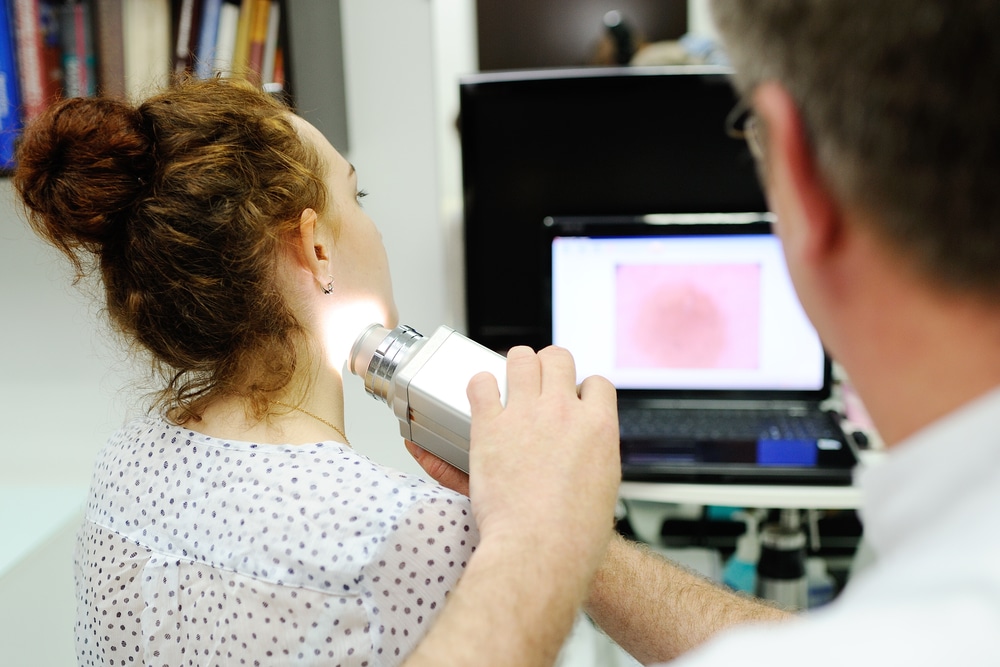Proscia has released study results on new artificial intelligence (AI) that predicts diagnostic agreement for melanoma, the deadliest form of skin cancer.
The findings, presented at the European Conference on Computer Vision (ECCV) 2022, highlight the potential of the technology to improve diagnostic accuracy for melanoma and other diseases with low pathologist concordance.
Conducted at the University of Florida and Thomas Jefferson University, Proscia’s study “Using Whole Slide Image Representations from Self-Supervised Contrastive Learning for Melanoma Concordance Regression” demonstrated the AI’s performance on 1,412 whole slide images of skin biopsies.
Each image was assessed by three to five dermatopathologists to establish a concordance rate.
Potential benefits
In addition to this study, Proscia plans to conduct additional research illustrating the potential benefits of AI in helping pathologists to diagnose melanoma.
One such benefit is lowering the misdiagnosis rate for difficult cases. Melanoma often presents like benign mimickers, causing pathologists to disagree on its diagnosis 40% of the time. As cases are often evaluated by only one pathologist, AI that predicts concordance with multiple experts could help to improve diagnostic accuracy by serving as a second set of eyes.
Also, turnaround time for critical results can be speeded up. More than 15 million skin biopsies are taken annually in the U.S., each of which may display one of hundreds of diagnoses. AI that predicts diagnostic agreement could flag cases that were likely to be challenging, driving efficiency gains by suggesting additional testing to provide a more complete look prior to pathologist review.
Another benefit is reduction in cost. Frequent over-diagnosis of melanoma not only results in additional costs for health systems but also leads patients to undertake unnecessary treatment and cope with the stress of believing they have a life-threatening disease. Increased diagnostic accuracy could help to eliminate these burdens.
Other diagnoses
“Melanoma can be very challenging to diagnose,” said Kiran Motaparthi, director of Dermatopathology and Clinical Associate Professor of Dermatology at the University of Florida.
“Proscia’s technology signals an exciting advancement as pathologists increasingly turn to AI to deliver on their commitment to excellent patient care.”
Proscia’s research also indicates that the same AI could be extended to other diagnoses that demonstrate low pathologist agreement. This includes breast cancer staging as well as Gleason grading of prostate cancer, which is used to evaluate the aggressiveness of the disease. Both often play an important role in informing treatment decisions.
“With this study, we have laid the groundwork for a new use case of AI in pathology that could have a tremendous impact on patient outcomes,” said Sean Grullon, Proscia’s lead AI scientist and lead author of the study.
“Our technology relies on self-supervised learning to recognize incredibly subtle patterns, demonstrating the power of one of the most advanced approaches in AI.”





